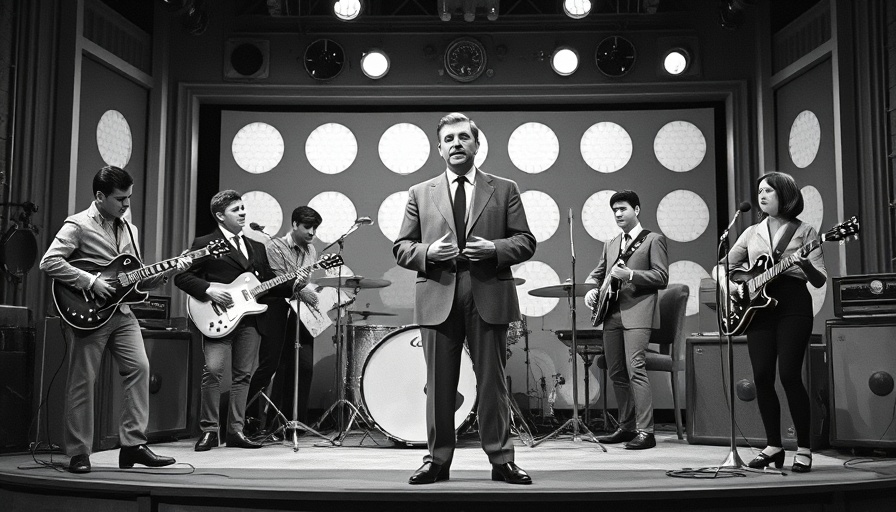
Discovering Ed Sullivan’s Cultural Impact
Ed Sullivan, often remembered as the host who introduced Elvis Presley and The Beatles to American audiences, took center stage not only for his iconic variety show but also for his influential role in battling segregation during a tumultuous period in American history. The Netflix documentary Sunday Best: The Untold Story of Ed Sullivan offers an illuminating exploration of how Sullivan’s commitments shaped cultural acceptance and diversity on television.
Breaking Barriers in Entertainment
Sullivan's show, initially titled The Toast of the Town, began its journey in 1948. It became a platform for a variety of performers, ranging from classical ballet to comedy, challenging the narrowly defined standards of entertainment at the time. Notably, at a time when many in Hollywood and the music industry bowed to segregation pressures, Sullivan's choices diverged. His granddaughter, Margo Precht Speciale, emphasizes that Sullivan showcased talent independent of skin color, asserting, "It wasn’t about the color of your skin or your background. He really only cared about talent." This philosophy made Sullivan a vital ally for Black artists in an industry resistant to change.
Cultural Implications of Sullivan's Legacy
The societal ramifications of Sullivan's decisions on television were significant, making the arts more accessible. Sullivan's insistence on featuring Black musicians like the Jackson 5 proved foundational for the evolution of music diversity in America. His platform became essential for artists to break through racial barriers in the entertainment world. This narrative not only elevates Sullivan's legacy but sheds light on broader societal attitudes and cultural acceptance in the mid-20th century.
Lessons for Modern Business and Media
Sullivan's story is not merely a memoir of an entertainment titan; it is a case study on the importance of inclusivity and representation within industry practices. In today’s corporate and media environments, leaders can draw lessons from Sullivan's approach to diversity and talent recognition. By embracing varied backgrounds, businesses enhance their relevancy and resonance with diverse audiences. The art world, much like the business world, flourishes when it invites all voices to the table.
Reflecting on Racial Equity in Entertainment Today
As we witness current struggles for racial justice and representation within media, Sullivan’s legacy serves as both an inspiration and reminder of the potential impact individuals and platforms have to advocate for essential change. The importance of diverse programming and representation can resonate deeply across industries, especially in fields such as construction and community development which affect societal landscapes directly. This raises an intrinsic question for businesses today: how can they foster inclusivity within their operations and outreach?
How Businesses Can Influence Change
Companies, particularly in the construction and property development sectors, have a unique opportunity to champion diversity in their projects and partnerships. By prioritizing diverse hiring practices and engaging with communities they serve, businesses can foster environments of equality and acceptance, mirroring the cultural shifts initiated by Ed Sullivan during his time. This proactive approach not only improves workplace culture but can also lead to enhanced community relations and customer loyalty.
Sullivan's commitment to showcasing a variety of talents irrespective of race presents a crucial opportunity for businesses to assess their own practices and ensure they actively contribute to a more equitable future. Understanding and reflecting on Sullivan’s legacy can empower current and future leaders in business to create spaces for all voices.
These insights are not just historical reflections; they position today’s leadership and operational strategies as vital for integrating cultural diversity as a core business value.
To fully grasp the nuances of these themes and gain actionable insights, businesses and individuals alike should watch Sunday Best to better understand how cultural shifts can shape modern identities.
 Add Row
Add Row  Add
Add 




Write A Comment